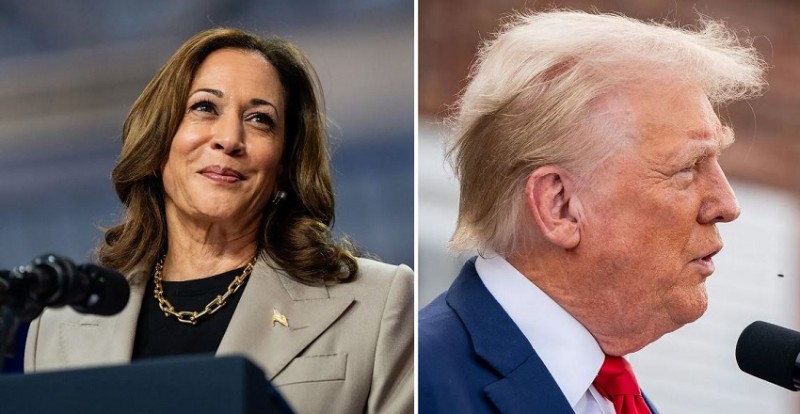
Donald Trump has made a return to the social media platform X after a year-long absence, posing a familiar question to his 89 million followers: “Are you better off now than you were when I was president?” This echoes Ronald Reagan’s famous line from his 1980 presidential campaign. For Trump, focusing on the economy seems to be an obvious tactic, given that polls frequently highlight this issue as a top concern for American voters.
Recent surveys, including one conducted by The Economist and YouGov, show that inflation and the economy are at the forefront of voters' minds. But despite the economic unrest, Trump is finding it difficult to drive home his message as Kamala Harris emerges as the Democratic candidate, replacing Joe Biden. Harris has sparked excitement among voters, leaving Trump’s campaign struggling to maintain its momentum.
In recent speeches, Harris has made efforts to address the economic anxieties of voters. Promising to expand child tax credits, help first-time homebuyers, and support affordable housing, she aims to lower the cost of living. She has also vowed to combat rising grocery prices by tackling corporate price gouging. “By any measure, our economy is the strongest in the world,” Harris said, while acknowledging that many Americans have yet to feel the benefits in their day-to-day lives.
Despite some strong economic indicators under the Biden administration, including job growth and a recent drop in inflation below 3%, voters are still grappling with high prices. They care more about the overall cost of goods than inflation rates, and this disconnect between economic data and voter sentiment has made it difficult for the Democrats to capitalize on their achievements.
Some voters, like Jeff Tester, a marina worker in Maryland, blame Democratic policies for their financial struggles. Tester believes the rising prices are making it harder to achieve the American dream. On the other hand, some like retired boat broker Dan Nardo attribute the price hikes to global issues such as the pandemic, oil prices, and supply chain disruptions rather than U.S. leadership.
Although Harris has faced challenges in gaining prominence throughout her vice-presidency, her current position could work in her favor, allowing her to distance herself from the economic policies linked to President Biden. Polling data from the New York Times suggests that voters are more likely to blame Biden for economic woes, while Trump’s once significant lead over Biden on the economy has diminished to just 8 points over Harris.
In contrast, Trump’s ability to stick to the economic message has wavered. Although his advisers have urged him to focus on inflation and the economy, he often veers off course, discussing issues like immigration and crime instead. Republicans are now urging him to keep his focus on core economic issues if he wants to regain voter confidence.
As the 2024 election looms, the question of whether voters feel financially secure will be central to the outcome. Trump’s challenge lies in convincing them that a return to his leadership will improve their economic outlook, while Harris must demonstrate that she can continue to steer the nation through its current economic challenges.